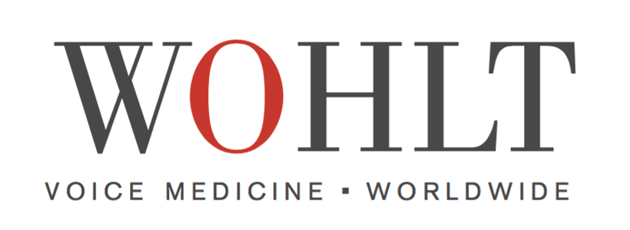Vocal Arts Medicine
The term “Vocal Arts Medicine” refers to a field specialized in the care and prevention of professional voice disorders in performing artists.
Dr. Wohlt ranks internationally as one of the most renowned specialists in the field of voice medicine for singers and actors.
He is a trained singer and singing teacher himself and therefore has a great understanding for the subtle disturbances that can affect a singing voice.
Performing artists and entertainers from all over the globe, including operatic luminaries and pop stars among others, seek out his help if they need vocal cord surgery, rehabilitation of their singing voice or technical coaching for their singing.

Voice Surgery for Professional Singers
“Voice surgery for professional singers” is a highly specialized operative method aimed at reinstating the fine vocal and singing function of the artist.
Over a period of more than 15 years, Dr. Wohlt has developed his own special method of voice surgery and then modified the technique to be particularly gentle on the voices of performing artists and professional singers. This method of voice surgery bears his signature: He has meanwhile performed it on hundreds of professional singers. Judging by the years of regular follow-up examinations on patients, he knows that this surgical technique produces excellent long-term vocal outcomes.…more
The following video examples show the vocal folds of a coloratura soprano who developed a vocal cord varix; that is, a varicose vein on the surface of her vocal cord. The video provides a fine example of how her voice cracks when she tries to sing the high glissandi. The higher she sings up the scale, the more the varix turns towards the vocal fold margin, blocking the vibration.
After the operation, the full functionality of her singing voice was reinstated.
Vocal folds of a female singer before surgery
Vocal folds of a female singer after surgery

Vocal Rehabilitation for Professional Singers
“Vocal Rehabilitation for Professional Singers” is an artistic functional voice therapy regimen secondary to phonosurgical procedures. The protocol developed by Dr. Wohlt over a period of 15 years is especially tailored to the postoperative voice therapy of singing professionals.
This therapeutic method has proved its merits in hundreds of professional singers Dr. Wohlt has operated on. The cumulative years of postoperative follow-up on patients, have shown that it is this combination of optimal phonosurgery and “vocal rehabilitation for professional singers” that produces the most outstanding vocal outcomes. …more


Emergency Treatment of Singers Before a Performance
Whenever a singer develops an acute illness, the laryngologist is frequently confronted with the situation of having to treat him or her within a day or even a few hours. Often, this is not possible due to the slow metabolic processes at play in the vocal folds.
In this context, singers should be warned against spray treatments like the instillation of decongestant medication, frequently with an additive local anesthetic. The anesthetic effect of these drugs causes the artist to partially lose kinesthetic control over their voice. Moreover, these shots encourage the singers to overuse or misuse their voices because the pain or discomfort from the disease they would otherwise experience naturally has been canceled out by the “shot” in their throat. This can mask inflammatory conditions and promote the development of vocal fold lesions. In cases of doubt, the artist is well advised to cancel a performance rather than run the risk of contracting a severe inflammation or developing vocal cord nodules.
Similarly, the “cortisone shot” before a performance is urgently advised against. Acute voice disorders in singers are usually caused by a viral or bacterial inflammation. Although the cortisone temporarily suppresses the concomitant inflammatory symptoms (redness, swelling, heat generation), it does not treat the true underlying cause of the condition. This kind of treatment occasions the singer to inappropriately overuse his or her voice and thereby risk delaying the regenerative processes and allowing vocal fold nodules to grow.
Notwithstanding, cortisone has indeed frequently proven its merits in reducing vocal fold swelling. When administered, a conscious effort should be made to give the voice a rest.




